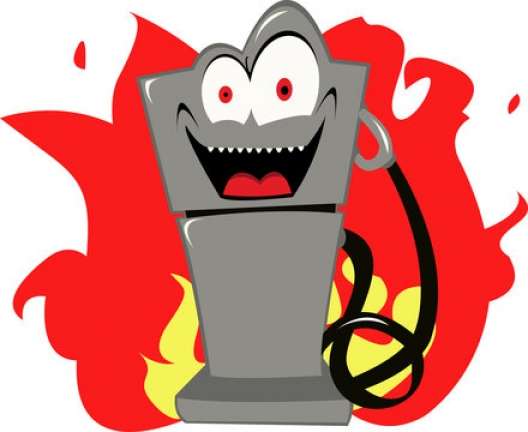According to the National Resource Defense Council (NRDC), at least 77 million Americans draw water from systems that fail to meet federal safety standards. Furthermore, the NRDC warns that, if they accounted for underreporting, the actual number of Americans drinking contaminated water would likely be much higher.
So how can you protect yourself and your family?
In fact, one of the best ways to protect yourself and your family is to change your refrigerator water filter regularly. Of course, changing the water filter means finding the best water filter.
In this guide, you’ll learn what to look for so that you can buy the best refrigerator water filter for your needs and budget.
Why Do You Need a Refrigerator Water Filter?
Americans assume that their drinking water is safe, and public water supplies are treated. Local water treatment plants remove contaminants, including bacteria, pharmaceutical waste, and even mercury and lead.
Unfortunately, however, these systems aren’t fool-proof, and they aren’t 100% effective. Trace amounts of these contaminants can remain in the water that flows into your faucets and refrigerator. As the NRDC study shows, some Americans regularly drink water that contains dangerous levels of these contaminants.
Another problem is that the chemicals used to purify drinking water can, themselves, be dangerous. For example, water treatment plants use chlorine to remove contaminants. However, some of this chlorine can remain in the water you drink.
Installing filters in your house, including in your refrigerator, gives you and your family another layer of protection.
Ice and water refrigerator filters purify your family’s drinking water by forcing it through activated carbon. In a water filter, carbon acts like a magnet for dangerous contaminants. While clean water flows out of the dispenser, pollutants and other particles remain trapped in the filter.
The result is safe water that tastes and smells fresh.
Why Do You Need to Change a Refrigerator Water Filter?
Like any other filter, refrigerator water filters need to be changed regularly. Eventually, the carbon “magnet” becomes coated with the particles it has trapped. As it result, it can’t trap new particles.
To visualize, think of a magnet whose surface is completely covered with paper clips. Eventually, that magnet simply can’t hold another paperclip. At this point, it’s also relatively easy to dislodge some of the paperclips from the magnet’s surface.
In the same way, a worn-out water filter eventually can’t hold another contaminant. In fact, as water flows through a worn-out filter, it can even dislodge some of the older particles back into your cup.
To keep your water clean, Consumer Reports recommends changing your refrigerator water filter at least twice a year. Many refrigerators also come with an indicator light to remind you. Finally, you might simply notice signs that it’s time to replace your filter. These include:
- A change in your water’s taste, smell, or appearance
- Reduced flow from your water dispenser
- Decreased ice production from your icemaker
What Should You Look for in a Refridgerator Water Filter?
So when it’s time for a replacement, how do you find the right filter? What factors should you consider?
1. Compatibility
Before you compare any other features, you need to make sure that the water filter will work with your refrigerator.
Whether you’re shopping for a filter in the store or online, have your refrigerator’s model number handy. Make sure the filters you’re comparing list that model number.
2. Certifications
The best water filters are certified by professional organizations, like the National Science Foundation (NSF).
The NSF establishes health and environmental standards for consumer products. Three standards measure the quality of refrigerator water filters:
- NSF/ANSI Standard 42
- NSF/ANSI Standard 53
- NSF/ANSI Standard 401
NSF/ANSI Standard 42 addresses material safety. In other words, it ensures that the materials in the water filter won’t add contaminants to your water. At the same time, it also indicates that a product is effective at removing chlorine and improving taste and smell.
If you’re concerned about levels of lead in your water, pay attention to NSF/ANSI Standard 53. This standard measures a filter’s effectiveness at removing not only lead but also asbestos and many parasites.
Finally, NSF/ANSI Standard 401 indicates a filter that is able to remove pharmaceutical waste and other chemicals. These might include DEET, BPA, ibuprofen, and many others.
With these standards in place, the NSF tests a water filter’s ability to meet them. It lends its approval only to products that meet its standards. Adding another layer of accountability, it also conducts annual audits of the facilities that manufacture these filters.
When you choose an NSF-certified filter, you can rest assured that it will effectively remove contaminants.
NSF-certified products bear the NSF logo. Look for this label when purchasing your filter. You can also look for the packaging to mention the above standards.
3. Capacity
Experts recommend changing your refrigerator water filter every six months. Most water filters indicate this six-month lifespan on the packaging. However, in calculating the frequency with which you need to change your filter, you also have to consider its capacity.
Capacity refers to the volume of water the filter can clean. It is measured in gallons. Two hundred gallons is a common size for residential refrigerator filters.
If your family drinks more than 200 gallons in a six-month period, you’ll need to change your filter more frequently. Alternatively, you can look for a filter with a greater maximum capacity.
4. Cost
As with most consumer products, the cost of refrigerator filters can vary significantly. Brand name filters tend to be the most expensive. However, a higher price tag does not necessarily indicate a better product.
In fact, the list of certified filters includes brand names and brand-name alternatives. If you choose a certified filter that is compatible with your refrigerator, you can expect good results.
Choosing a Refrigerator Water Filter to Keep Your Family Safe
Your refrigerator water filter does a dirty job. It drinks contaminants, like lead, chlorine, and bacteria, so you and your family don’t have to.
To make sure your filter does the best job, you need to change it regularly. You also need to choose the best filter. The factors above are among the most important to consider when making this decision.
Whether you’re deciding on the right water filter, the right laptop, or the right TV remote control, count on our blog for the best advice.















